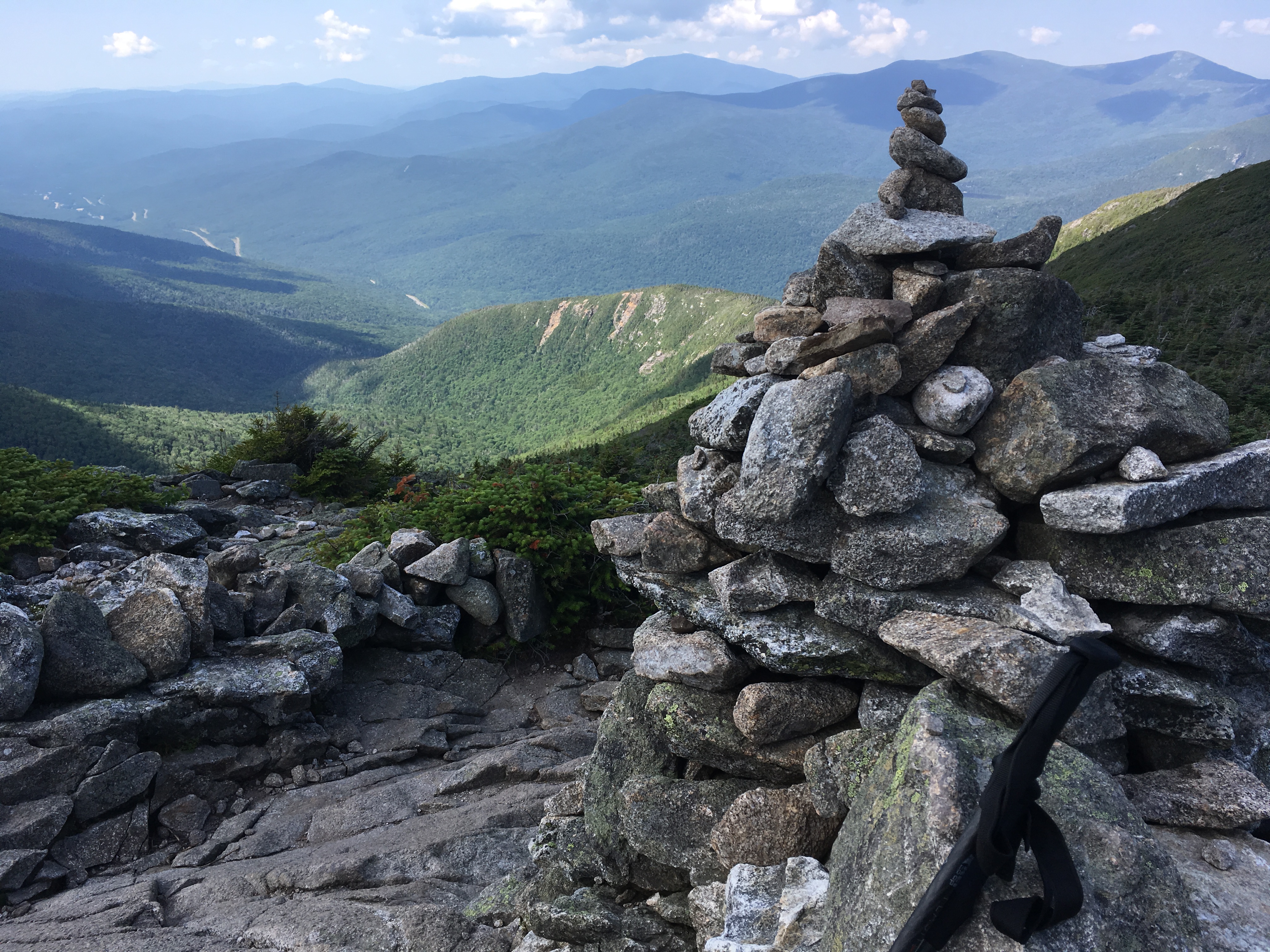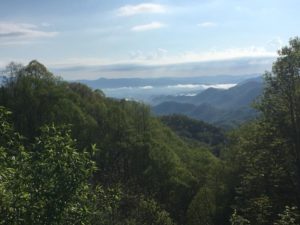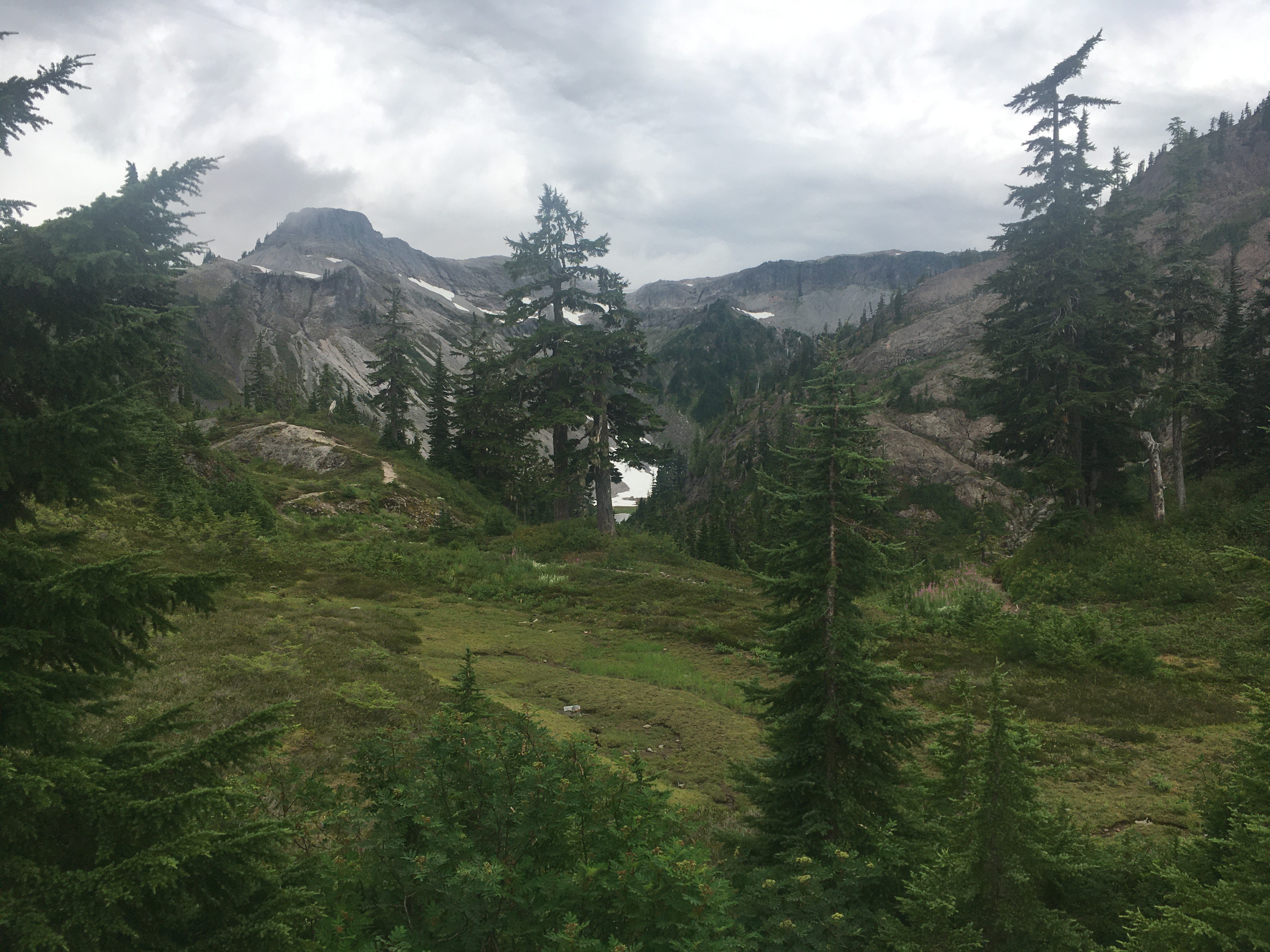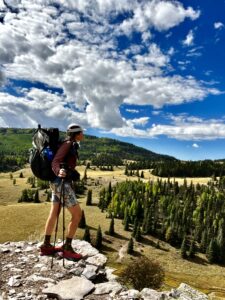The Appalachian Trail is a goal, albeit a large one, for most novice and experienced thru-hikers. This begs the question, why do we create goals?
Goals aid in driving humans to keep learning and growing through their experiences, which is why it is still vastly researched and consistently emphasized in the workplace, in education, and even nationwide on the first day of each new year. Depending on the person, goals can range from weight-loss to learning a language to planting a garden to even walking across the country.
Famed psychologist Albert Bandura thought one way humans looked for self-satisfaction was through goal setting. Depending on a person’s level of self-efficacy, they will set lofty goals and keep pushing forward in times of adversity in order to achieve what they set out to do.
When a person has high self-efficacy, they are confident in their abilities to complete the task that they have set forth for themselves in any and all areas of life, from personal health to education levels. Additionally, someone with high self-efficacy looks at challenges in life as something they can conquer or master and rarely shy away, for they know they are completely capable of successfully navigating them.
They bounce back faster after setbacks in life, and are intrinsically motivated to accomplish intricate and challenging goals. They tend to fall into bouts of depression and stress less frequently than those with low self-efficacy, who are often seen taking the easy way out or around difficult situations.
When I asked hikers why they initially set the goal to attempt the Appalachian Trail, some wanted to inspire others to follow in their footsteps, others aimed to experience nature more fully.

Some wanted the internal transformation, while others wanted to grind it out and get as much physical adversity as they could handle before going back home.
What’s interesting about the initial motivations for AT hikers is that they were all equally divided in their reasons for attempting the feat. Of the main motives for seeking the Appalachian Trail, seven wanted to challenge themselves and prove they could do it, seven wanted plainly to have fun in nature, and seven were looking to escape some aspect(s) of their life.
Flake is one hiker I interviewed who was purely motivated by the physical challenge of the trail, wanting only to see how far his body would take him. “[I wanted] to complete something big that challenged me in a lot of ways…the feeling I would get upon completion [of the trail],” he admitted when I asked why he started the hike. He was honest in his motivation to have a certain feeling when he completed the trail – talk about delayed gratification! Strangely at ease without the mental stimulation others craved and fled their old lives to find more of, Flake was happy to finally be in a situation where he could do more than just a few short hikes around the Virginia highlands.
Another hiker in a bright pink hiking shirt with pearly-white buttons, Costa Rica, agreed and added, “I came to lower my expectations in life and face adversity…to see how little I can live with.” I was so intrigued by his answer since I’ve known so few people that purposefully attempt such arduous feats in order to grow and be better.
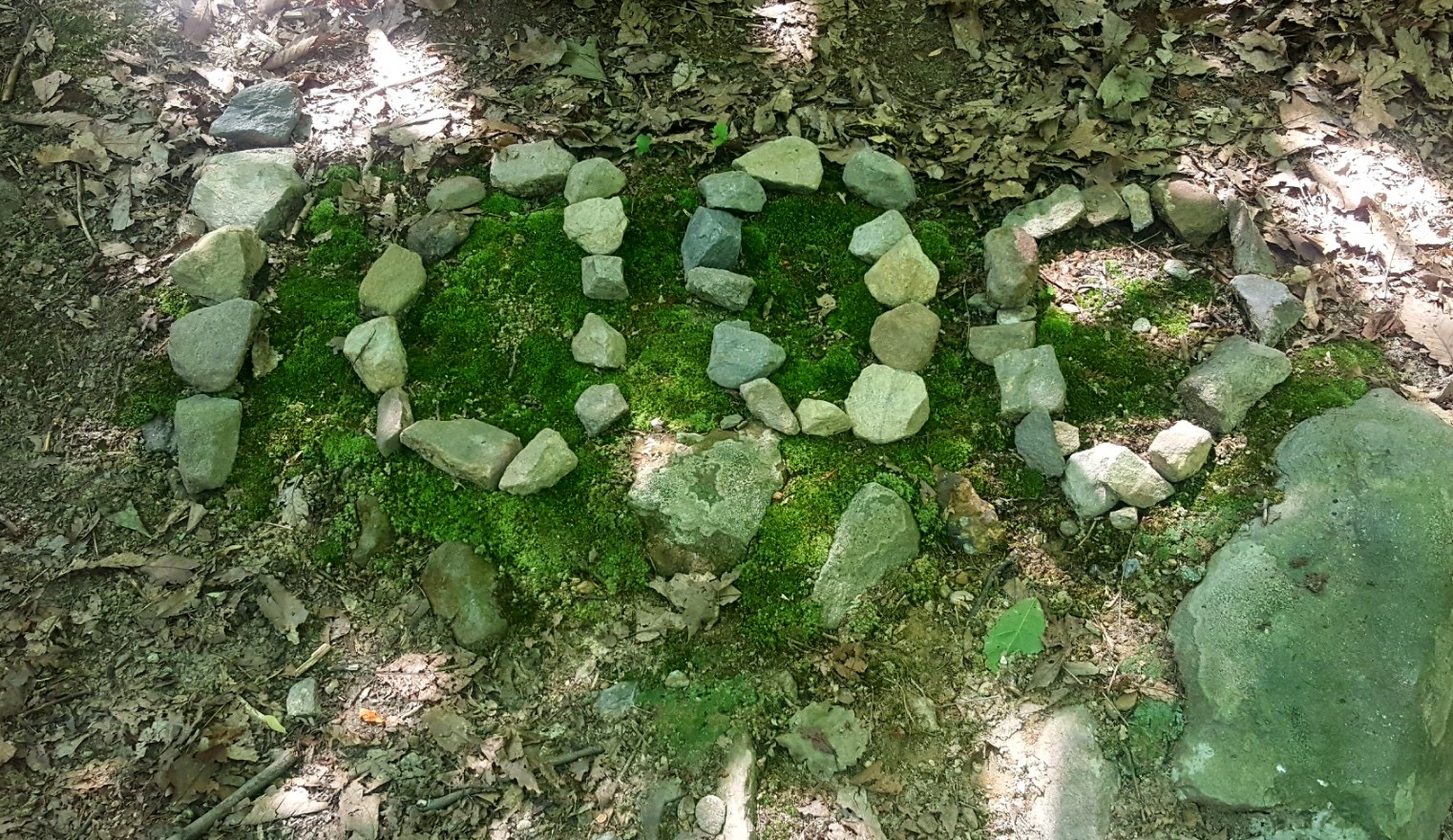
Some hikers crave a challenge of the mind more so than the body, wanting to see how much they can mentally withstand before the urge to quit settles in like a cold hiker into their sleeping bag after a long day of walking. However, to push oneself mentally can look different to different people.
It can mean working through pain, looking for answers to life’s biggest questions, or simply doing a new activity and getting outside the normal zone of comfort. At times, hiking the AT is just being with the mind and all the thoughts that call it home, either to process a life event or find a new type of challenge that isn’t among the mundane routine of everyday life at home.
A strong-willed hiker with a pixie haircut, Dragon, sat near me at the blue-green pool on our off day in New Hampshire, calmly confessing just how much hiking meant to her. “It’s gotten me through the hardest times in my life; depression, suicidal depression, getting through my mom’s death. Hiking has been the thing that kept me grounded through those things,” she said. “I initially thought [that] if I could spend several months doing the best thing ever, why wouldn’t I do that?”
A combat veteran who I spent some time with in New England, Little John, explained that he was hiking for himself; “To work through past suicidal thoughts, others I’ve lost to suicide, and bringing awareness for them.” Little John donned a scruffy beard almost down to his chest that appeared to keep most people at bay from striking up conversation with him, which is just how he preferred it.
Sapien, who’d hiked the AT twice already, said in between bites of his chocolate chip Clif Bar, “I wanted to be in nature and get away from everything.” Exactly what he felt the need to get away from I wasn’t sure. As if seeing the curiosity on my face, he spoke to me openly about not fitting in with others in society and not feeling heard or seen by the community. I was surprised by how much he dealt with internally, yet somehow seeming so charismatic and put together on the outside.
Shawshank, arguably Sapien’s opposite both in personality and age, gave me his take on why he came to the trail. “I was unhappy with my life, stuck in a small town living with my parents. I was unhappy with my job and coworkers and wanted to try to be my own adult person.” He had just graduated from university and pleasantly surprised me with how beyond his years he acted. He spoke at a soft volume that matched his empathic personality, which was a large change from Sapien’s booming but never condescending voice, each telling their story in their own distinct way.
Runner was open about being “Tired of the nine-to-five world,” she said in an exhausted tone. “I want an adventure before settling down, and I’d also like to inspire others.” She was the only person that voiced her desire to inspire other people, specifically women, but made it clear that first and foremost she was hiking for herself. (It is worth noting that a woman in her twenties is already tired of the nine-to-five world.)
The rest of the interviews are in my upcoming book, but it is clear from the above quotes that hikers are on the trail for similar yet individual reasons. There is something in their life that is not being filled and the Appalachian Trail is a potential answer.
To some, walking 2,200 miles is a long-term goal, while others consider it more short-term. Nevertheless, no matter how obscure it may be to some, it is still an intrinsically motivating goal to strive for. We all have some level of motivation, whether small or life-changing, conscious or otherwise, and what draws us towards it is just the tip of the iceberg of motivation.
Thru-hiking can be a conduit to remove oneself from a given situation to gain new perspectives, while seeing what is attainable both physically and mentally. And it all starts with a single goal from one point of internal motivation.
Submerged in nature, we can rekindle our lost ability to talk to and connect with strangers, and the wilderness calls to those who choose to answer.
